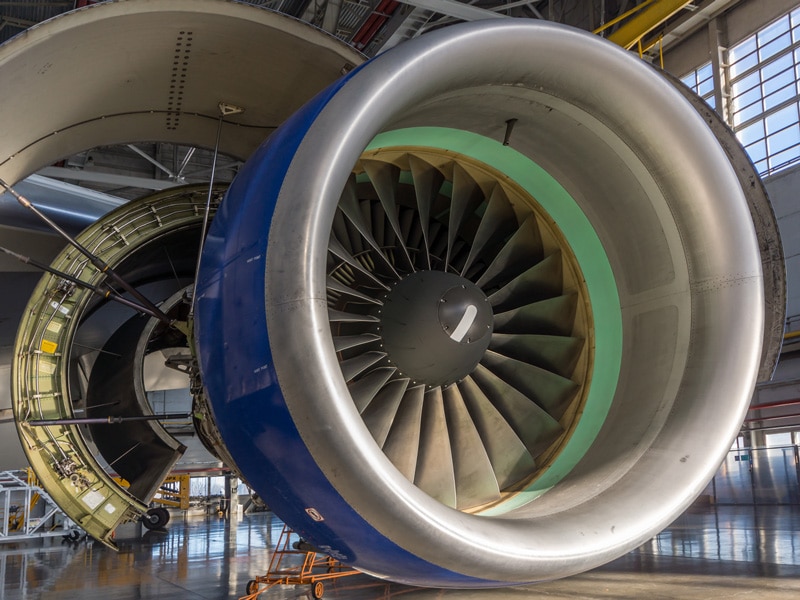Precision CNC Machining for Aerospace

CNC machinery can handle a wide variety of metals, including materials that can withstand the intense pressures and temperatures inherent to critical applications in the aerospace industry.
There is a constant demand for highly precise components within this industry as even the smallest imperfection can result in costly damages or danger to human life. Precision is also crucial in ensuring optimal functionality under high-altitude and high-pressure conditions.
Aluminum Alloys
There are several aluminum alloys that are particularly well suited for aerospace applications, including but not limited to:
- Aluminum Alloy Series 2xxx.Aluminum in this series has been alloyed with copper. These alloys feature high strength, excellent machinability, and good workability. Common applications for this series include wing and fuselage structures due to its good strength-to-weigh ratio.
- Aluminum Alloy Series 6xxx.This is a very versatile series of aluminum alloys. Combined with silicon and magnesium, alloys in this series offer good formability, medium strength, and corrosion resistance.
- Aluminum Alloy Series 7xxx.Containing zinc as the primary alloying element along with copper, chromium, and magnesium, this series displays high strength and is used throughout defense and aviation industries for military aircraft.
Tungsten Alloys
Tungsten is the most heat-resistant metal, and it has the highest density and strength of the refractory metals. Tungsten alloys with alloying elements have good wear resistance, corrosion resistance, electrical conductivity, and thermal conductivity.
Tungsten alloys have good wear resistance, corrosion resistance, electrical conductivity, and thermal conductivity. Tungsten alloy is used for the rotor material of a gyroscope, which is the heart of navigation and control systems for satellites, rockets, missiles, aircraft, submarines, and torpedoes.
Tungsten and its alloys can be used to make uncooled rocket nozzles, ion rings for ion rocket engines, jet blades and positioning rings, hot gas reflectors, and gas rushers. The material is also suitable for rocket engines, hypersonic aircraft leading edge, and re-entry aircraft thermal insulation shield.
Tungsten is used in radiation shielding. A superior choice as a safer metal, approximately 1/3 less material is required when using Tungsten over lead for shielding applications.
Nickel-Based Alloys
Nickel-based alloys are vital for high-pressure applications in the aerospace industry. They have excellent mechanical properties, naturally high tensile strength, magnetic properties, ability to withstand high stresses and extremely high temperatures, and excellent corrosion and oxidation resistance.
Many parts and assemblies for aircraft engines and gas turbines are composed of nickel alloys. To ensure product can withstand the extremely high temperatures and pressure applied, manufacturing precision is required.
Nickel-based alloys are also used for aircraft parts and assemblies, pressure vessels, exhaust systems, heat exchangers, bleed air ducts, rocket engines, and turbine blades
Nickel is a versatile metal in that it will alloy easily with most metals including copper, chromium, iron, and molybdenum. The purpose of nickel alloys is to create a metal that has the desired characteristics of both such as improvised corrosion, oxidation resistance, increased high-temperature performance or lower coefficients of thermal expansion.
Nickel combined with certain metals can create a high-temperature alloy with numerous beneficial properties, like resisting creep and other extreme conditions while offering reliable performance.
Creep is the tendency for individual components within larger systems to move and change position under the wear-and-tear from daily use and constant high pressures. Nickel alloys have extraordinary creep resistance and can also withstand extreme conditions or temperatures.
Nickel alloys also have naturally high strength, which means they can withstand very intense pressure and situations due to the high oxidation resistance and corrosion resistance they possess. This high resistance makes virtually every nickel alloy well-suited for high-pressure operations where strength and durability are of the utmost importance.
Tantalum and Other Materials
High quality metal components are needed to support Medical, Surgical, and Dental equipment companies. Tantalum is used in medical and dental applications because the metal has no effect on body tissues. Common applications include artificial joints, pins, screws staples, fracture and cranial-defect repair and permanent bone implants. Tough, durable, and ductile, tantalum also offers good workability and weldability. Additionally, it possesses the ability to grow uniform and stable oxides with good dielectric properties.
Precision-machined molybdenum and TZM is used in cathodes, anodes, rotors and targets.
Since 1984
We are proud to support our local communities with jobs that offer good working environment, excellent pay and benefits, growth opportunities and stability. Proud to be an American Manufacturer and a Woman Owned Business.
Contact Us Today